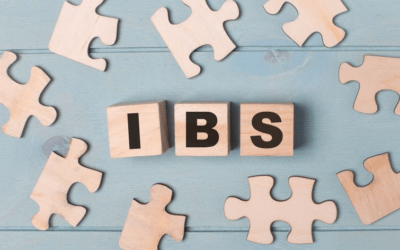Irritable bowel syndrome (IBS) is a common digestive disorder that affects millions of people worldwide. In the UK, research shows that 15-20% suffer with IBS symptoms, so you’re not alone. While it can cause a range of uncomfortable symptoms, including bloating, abdominal pain and changes in bowel habits, one of the most distressing aspects of IBS is the excess wind and the social embarrassment it can bring. So, the answer to the question “is having IBS embarrassing?” is YES, of course it is! The unpredictable nature of IBS can affect work life, social life and relationships. It’s insidious and before you know it you’re altering plans, avoiding prolonged social situations and excusing yourself from meetings. Fortunately, help is at hand. The low FODMAP diet improves symptoms in over 75% of sufferers, so what are you waiting for?
The social stigma of IBS
Unfortunately, digestive issues often carry a social stigma, leading many people with IBS to feel ashamed or embarrassed about their symptoms. This can make it difficult to engage in social activities, travel, or even eat out. The fear of experiencing a flare-up in a public setting can be overwhelming, leading to social isolation and anxiety. A bad experience just fuels the anxiety for the next time this situation presents itself. But, realising that this is more of a widespread problem than you thought, might just help. The chances are that someone you work with or a family member also experience symptoms and social anxiety. So sharing your anxieties may help and you may even pick up tips from others in a similar situation.
The potential benefits of the low FODMAP diet
The low FODMAP diet is an evidence based treatment for IBS symptoms and is recommended by the NHS. This involves short term dietary changes, taking known high FODMAP foods out of your diet and challenging with these foods once symptoms have improved. FODMAPs are a group of short-chain carbohydrates that can be poorly absorbed in the small intestine, leading to gas, bloating and bowel changes. By limiting FODMAP intake, many people with IBS experience significant relief from their symptoms. It’s a tricky diet to manage alone though. To ensure that you’re not on a restricted diet longer than necessary and for the best results, you should seek help from an IBS dietitian trained in FODMAPs.
How does the low FODMAP diet work?
The low FODMAP diet involves a three-phase process:
- Elimination Phase: For 4-8 weeks, you eliminate high FODMAP foods from your diet
- Reintroduction Phase: Once symptoms improve, you gradually reintroduce high FODMAP foods to identify individual triggers
- Personalisation Phase: Once you’ve identified your triggers it’s time to get back to a more normal diet
Overcoming embarrassment
While the low FODMAP diet can be a powerful tool for managing IBS, it’s important to address the emotional impact of the condition. Here are some tips to help you cope with embarrassment and take control of your IBS:
- Consult your doctor: A GP can do the right tests, diagnose IBS and recommend the best treatment plan for you
- Educate yourself: Learn about IBS and the low FODMAP diet to empower yourself
- Be pro-active: The low FODMAP diet improves symptoms in over 75% of sufferers, but is best done with the right support and advice. Seek out an IBS Dietitian trained in FODMAPs
- Practice relaxation techniques: Stress can exacerbate IBS symptoms. Try meditation, yoga, and deep breathing as these can help manage stress and anxiety
- Communicate openly: If you’re comfortable, talk to friends, family, or colleagues about your condition
- Seek support: Connect with others who have IBS through online forums or support groups. Sharing experiences can help alleviate feelings of isolation
- Plan ahead: When dining out, choose restaurants with low FODMAP options or inform the staff of your dietary needs
- Consider professional help: If you’re struggling with anxiety or depression related to IBS, seek help from a therapist or counsellor
By understanding IBS, making dietary adjustments and practicing self-care, you can take control of your symptoms and reduce embarrassment. Remember, you’re not alone, and there are effective strategies to help you manage IBS and live a fulfilling life. So, the answer to the question “Is having IBS embarrassing?” can be NO, it doesn’t have to be.
Checklist
- IBS management is unique for everyone. What is a trigger for one person might not affect another
- Check with your GP if your symptoms are new or if you have blood in your stools
- If you have IBS symptoms, it’s important to consult with a healthcare professional for proper diagnosis and guidance
- Consider your IBS treatment options and find out more about FODMAPs
- Be patient and consistent. Managing triggers and improving IBS symptoms takes time and effort. Don’t get discouraged, and keep track of your progress
Change your life in just three sessions
Need help to manage your IBS symptoms? I’m based in Cardiff, but work with IBS sufferers across the UK through online sessions. The vast majority of my clients have found that only three sessions are needed before they feel confident to move forward on their own. I will send you booklets, which have an extensive list of all the foods you can eat on the low FODMAP diet. I’m available for advice and support between sessions. Find out more about my IBS symptoms relief package. I offer a free initial telephone call for you to decide whether the low FODMAP diet is right for you. So give me a call or fill out the contact form.
Many of my clients say that working with a specialist IBS dietitian has been life-changing, and are finally managing to live more comfortable lives.
Read about previous client experiences and to help you decide it this is the right approach for you, see my webpage about IBS treatment.
Disclaimer: This blog is for information purposes only and does not substitute for professional medical advice. Please consult your healthcare provider for personalised diagnosis and treatment of IBS.




